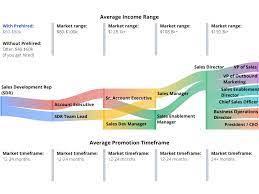The Importance of Digital Marketing for Restaurants
In today’s competitive restaurant industry, having a strong digital marketing strategy is essential for success. With the rise of online ordering, food delivery services, and social media platforms, restaurants need to effectively market themselves to attract and retain customers.
One of the key benefits of digital marketing for restaurants is the ability to reach a wider audience. By utilizing social media platforms such as Facebook, Instagram, and Twitter, restaurants can engage with potential customers and showcase their menu items, promotions, and events.
Another important aspect of restaurant digital marketing is search engine optimization (SEO). By optimizing their website and online content for search engines, restaurants can improve their visibility in search results and attract more organic traffic to their site.
Online reviews also play a significant role in the success of a restaurant. Positive reviews on sites like Yelp, Google My Business, and TripAdvisor can help build credibility and trust with potential customers. Restaurants should actively monitor and respond to reviews to maintain a positive online reputation.
Furthermore, email marketing can be a powerful tool for restaurants to communicate with their customers. By sending out newsletters, promotions, and updates via email, restaurants can keep customers informed about new menu items, special events, and exclusive offers.
In conclusion, digital marketing is crucial for restaurants looking to stay competitive in today’s digital age. By leveraging social media, SEO, online reviews, and email marketing strategies, restaurants can effectively promote their brand and attract new customers. Investing in digital marketing can lead to increased visibility, customer engagement, and ultimately higher revenue for restaurants.
9 Essential Questions Answered: Mastering Digital Marketing for Restaurants
- What is restaurant digital marketing?
- Why is digital marketing important for restaurants?
- How can social media help in restaurant digital marketing?
- What role does search engine optimization (SEO) play in restaurant digital marketing?
- How can online reviews impact a restaurant’s digital marketing strategy?
- What are the benefits of email marketing for restaurants?
- How can restaurants use content marketing as part of their digital strategy?
- What are some effective strategies for promoting special events through digital marketing?
- How can restaurants measure the success of their digital marketing efforts?
What is restaurant digital marketing?
Restaurant digital marketing refers to the use of online channels and strategies to promote a restaurant’s brand, attract customers, and increase visibility in the competitive food industry. It encompasses a range of tactics such as social media marketing, search engine optimization (SEO), online advertising, email marketing, and reputation management. By leveraging digital platforms effectively, restaurants can engage with their target audience, drive traffic to their website or physical location, and ultimately boost sales. In essence, restaurant digital marketing is about utilizing the power of the internet to connect with customers, build relationships, and grow a loyal customer base.
Why is digital marketing important for restaurants?
Digital marketing is crucial for restaurants because it allows them to reach a wider audience, engage with potential customers, and promote their brand effectively in today’s digital age. With the rise of online ordering, food delivery services, and social media platforms, restaurants need to have a strong online presence to attract and retain customers. Through digital marketing strategies such as social media marketing, search engine optimization (SEO), online reviews management, and email marketing, restaurants can increase their visibility, build credibility, and drive customer engagement. By investing in digital marketing efforts, restaurants can stay competitive, increase brand awareness, and ultimately drive more revenue for their business.
How can social media help in restaurant digital marketing?
Social media plays a crucial role in restaurant digital marketing by providing a platform for engaging with customers, showcasing menu items, promoting special offers and events, and building brand awareness. Platforms like Facebook, Instagram, and Twitter allow restaurants to interact with their audience in real-time, share visually appealing content, and create a sense of community. By leveraging social media effectively, restaurants can reach a wider audience, drive traffic to their website or physical location, and ultimately increase customer loyalty and engagement.
What role does search engine optimization (SEO) play in restaurant digital marketing?
Search engine optimization (SEO) plays a crucial role in restaurant digital marketing by improving the online visibility and search engine ranking of a restaurant’s website. By optimizing website content with relevant keywords, meta tags, and high-quality backlinks, restaurants can increase their chances of appearing higher in search engine results pages. This can lead to more organic traffic to the website, attracting potential customers who are actively searching for dining options. Additionally, SEO helps restaurants compete effectively in local searches, making it easier for diners to discover their menu offerings, location, hours of operation, and customer reviews. Overall, a strong SEO strategy is essential for restaurants looking to enhance their online presence and attract more customers through digital channels.
How can online reviews impact a restaurant’s digital marketing strategy?
Online reviews can have a significant impact on a restaurant’s digital marketing strategy. Positive reviews on platforms like Yelp, Google My Business, and TripAdvisor can help build credibility and trust with potential customers, ultimately influencing their decision to dine at a particular restaurant. On the other hand, negative reviews can deter potential customers and harm a restaurant’s reputation. It is crucial for restaurants to actively monitor and respond to online reviews to maintain a positive online presence and address any concerns raised by customers. By leveraging the power of online reviews, restaurants can enhance their digital marketing efforts and attract more customers to their establishment.
What are the benefits of email marketing for restaurants?
Email marketing offers several benefits for restaurants looking to enhance their digital marketing strategy. One key advantage is the ability to directly reach and engage with customers through personalized and targeted communication. Restaurants can use email campaigns to promote new menu items, special promotions, events, and loyalty programs, keeping customers informed and interested in their offerings. Additionally, email marketing can help drive traffic to the restaurant’s website or physical location, increase customer retention rates, and ultimately boost sales and revenue. By building a strong email list and delivering relevant content to subscribers, restaurants can cultivate strong relationships with their customers and create a loyal customer base.
How can restaurants use content marketing as part of their digital strategy?
Restaurants can effectively use content marketing as a key component of their digital strategy by creating and sharing valuable, engaging content that resonates with their target audience. This can include blog posts about menu highlights, behind-the-scenes videos showcasing the chef’s creative process, recipe tutorials, customer testimonials, and interactive social media posts. By consistently producing high-quality content that is relevant and informative, restaurants can build brand awareness, establish themselves as industry experts, and attract and retain customers. Content marketing allows restaurants to connect with their audience on a deeper level, drive traffic to their website or social media platforms, and ultimately drive conversions and increase customer loyalty.
What are some effective strategies for promoting special events through digital marketing?
When it comes to promoting special events through digital marketing for restaurants, there are several effective strategies that can be utilized. One key strategy is to create engaging and visually appealing content on social media platforms to generate excitement and interest among followers. Utilizing targeted advertising campaigns on platforms like Facebook and Instagram can help reach a wider audience and drive attendance to the event. Additionally, sending out email newsletters with detailed information about the special event, such as date, time, location, and any special promotions or discounts, can help generate buzz and encourage customers to RSVP. Leveraging influencer partnerships or collaborations with local bloggers or food influencers can also help increase visibility and attract a larger audience to the event. By combining these strategies and utilizing various digital marketing channels effectively, restaurants can successfully promote their special events and ensure a successful turnout.
How can restaurants measure the success of their digital marketing efforts?
Restaurants can measure the success of their digital marketing efforts through various key performance indicators (KPIs) such as website traffic, online reservations, social media engagement, email open rates, and online reviews. By tracking these metrics, restaurants can analyze the effectiveness of their digital marketing campaigns and make data-driven decisions to optimize their strategies. Additionally, monitoring return on investment (ROI) by comparing marketing costs to revenue generated from online channels can provide valuable insights into the overall success of their digital marketing efforts.



